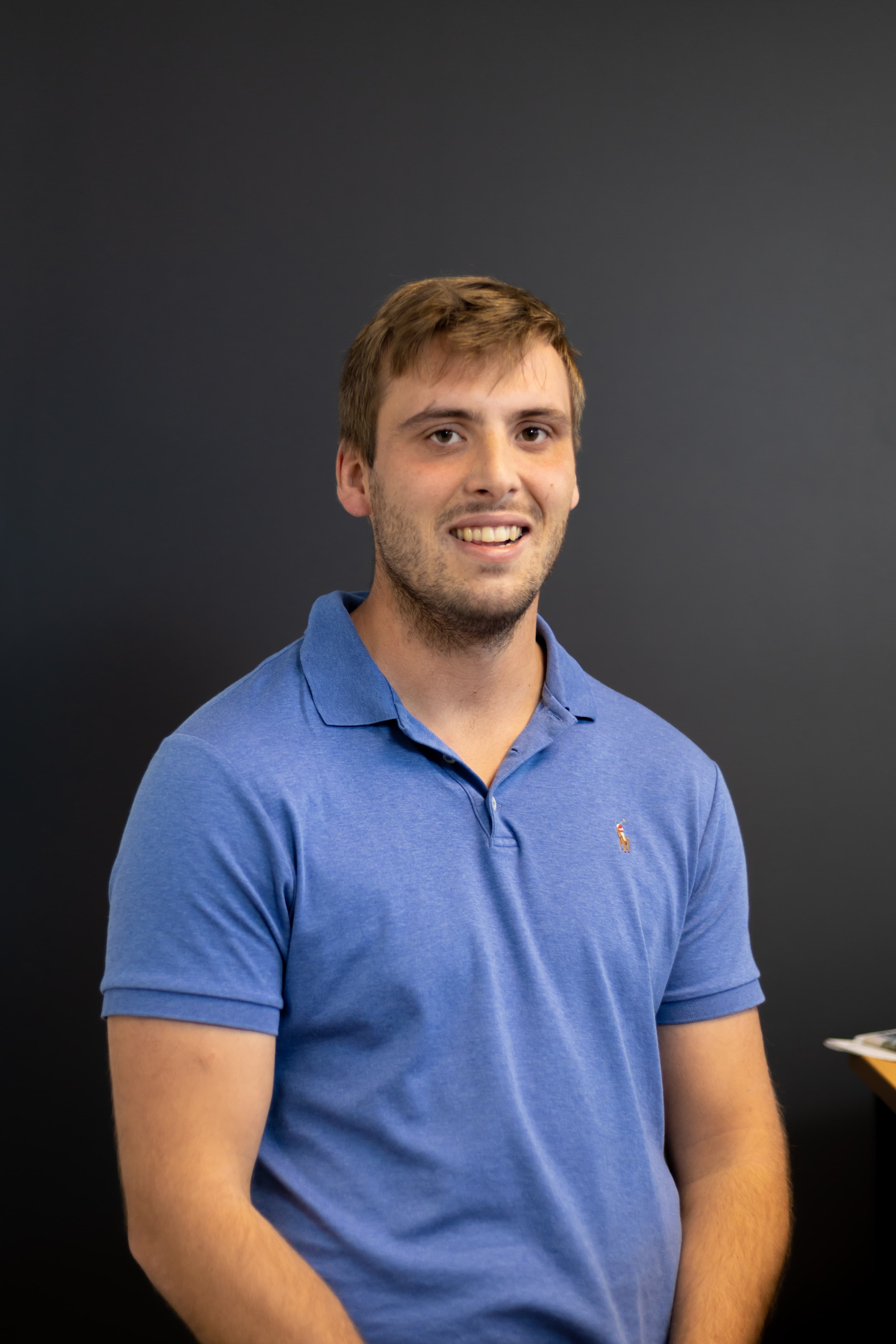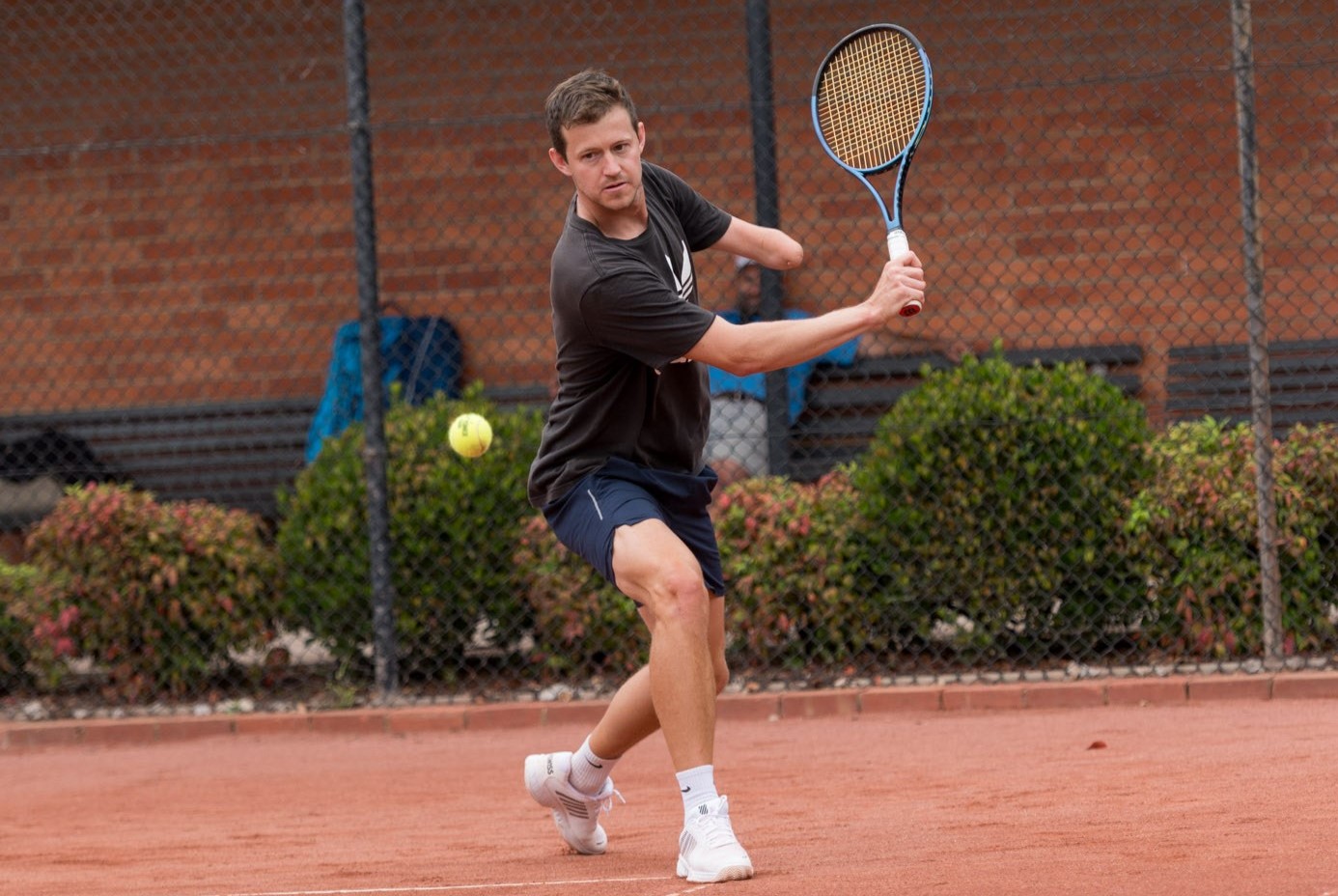Two paths but not at a crossroads for tennis star


Alex Hunt says he felt like he’d finally found a space where he belonged after a recent experience at a para-standing tennis event which was run alongside the Australian Open. Photo: Supplied/Alan Moyle.
It's an exciting time for Alex Hunt as he gets set to embark on another year of chasing his tennis dreams.
Having been back in town to get a new prosthetic arm, the professional tennis player is at an interesting point in his career as he eyes up his future.
"My true full dream is obviously, selfishly, to make it as a tennis professional.
"But, I'm getting a little bit older now I'm 30."
At the same time, Alex is on the board of the world body for para-standing tennis and wants to be part of the driving force behind seeing the sport adopted in the Paralympics alongside wheelchair tennis.
"That's the biggest thing, people don't realise that there's nothing for us.
"Think of me. The only option I've got is to play able-bodied because I can't play in a wheelchair.
"I'd just go around in circles," he laughs.
While he doesn't see the two paths, able-bodied and para-standing, as a crossroads, Alex says his eyes were opened to the possibilities at a recent para-standing tournament run alongside the Australian Open.
Although he knew most of the people in the space through social media interactions, he says it was different to experience it in person.
"I felt like I finally belonged at something.
"I'm so used to turning up to tennis tournaments and it's all about yourself. But that atmosphere to be a team, everyone wanted to play and be a part of something bigger.
"I wanted to say something (at the prizegiving) about how amazing it was to be here. . . in the flesh, but I got so emotional I couldn't finish."

He says it was exciting to see how everyone adapted differently to their disability, particularly in how people served with just one arm, from using their feet, to Alex’s style of holding the ball in his elbow joint and flicking it into the air.
It's a recent change for Alex, which he was partially forced into after swelling from an injury made it impossible to wear his prosthetic to play, which saw him experiment with playing without it for the first time.
"I went to training, and I sat out when everyone started playing a game because I couldn't serve, but everyone encouraged me to give it a go.
"I realised 'actually it's not that bad' and I went out and trained and trained to get it better."
The change stuck, with Alex saying it helped to be able to feel the ball at release instead of serving with his prosthetic.
"Now I actually feel it. I feel the rhythm.
"I'm just happier. Even if I'm off the court, I don't wear it (my prosthetic) as much. When I was young, I almost felt naked without it."
Despite being confident in his ability to outperform everyone at the para-standing event, Alex was shocked to find that there were some high-quality tennis players in the scene.
Alex's upcoming calendar sees him continue juggling the two codes, with money tournaments in able-bodied tennis while also lining up a crack at the Para-standing World Championships later this year in Italy.
He also wants to expand his coaching and mentoring business, saying he wants to pass on the lessons he had to learn the hard way to the next generation.
It’s exciting to be on the cusp of a para-tournament where he knows the quality of play is so high that he’s unsure if he will win.
"The greatest thing I can give is being there and supporting the tournament.
"How cool can life be, even though you're different."
